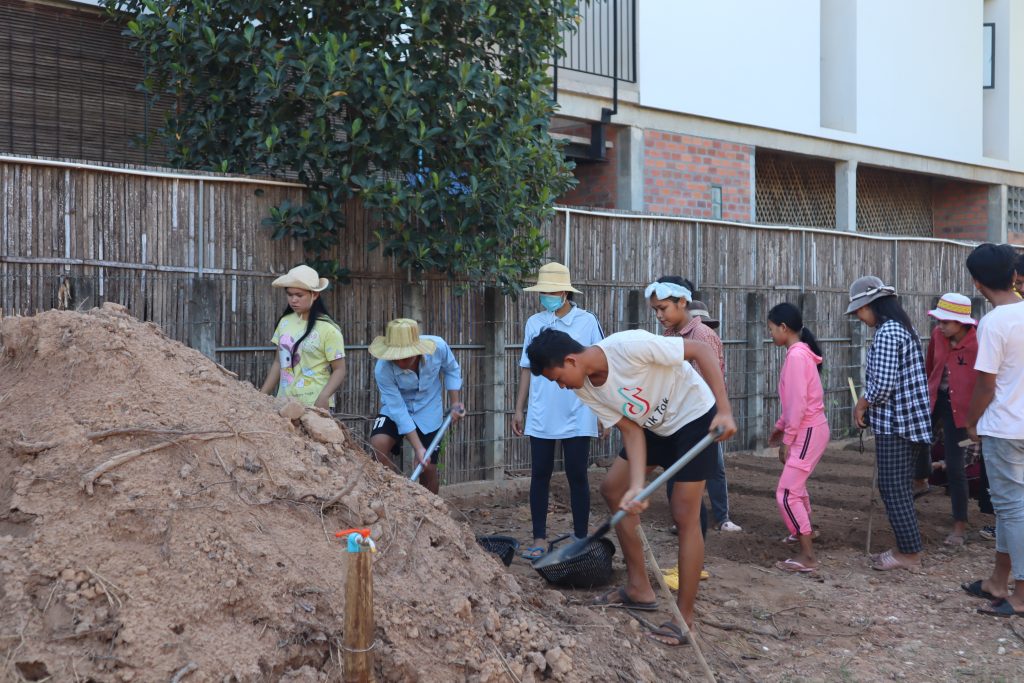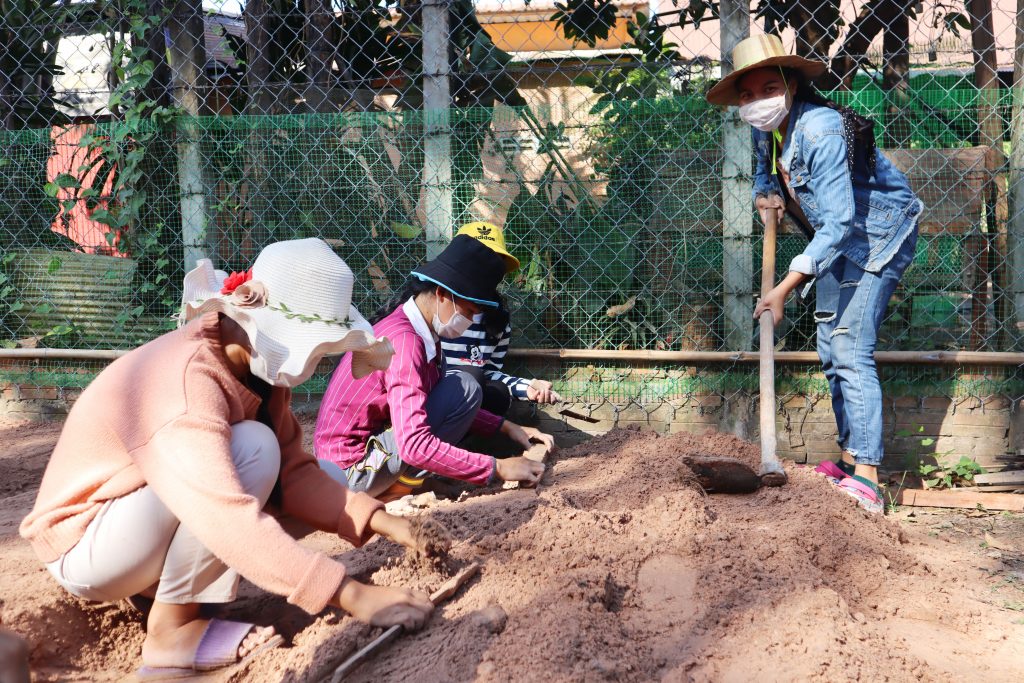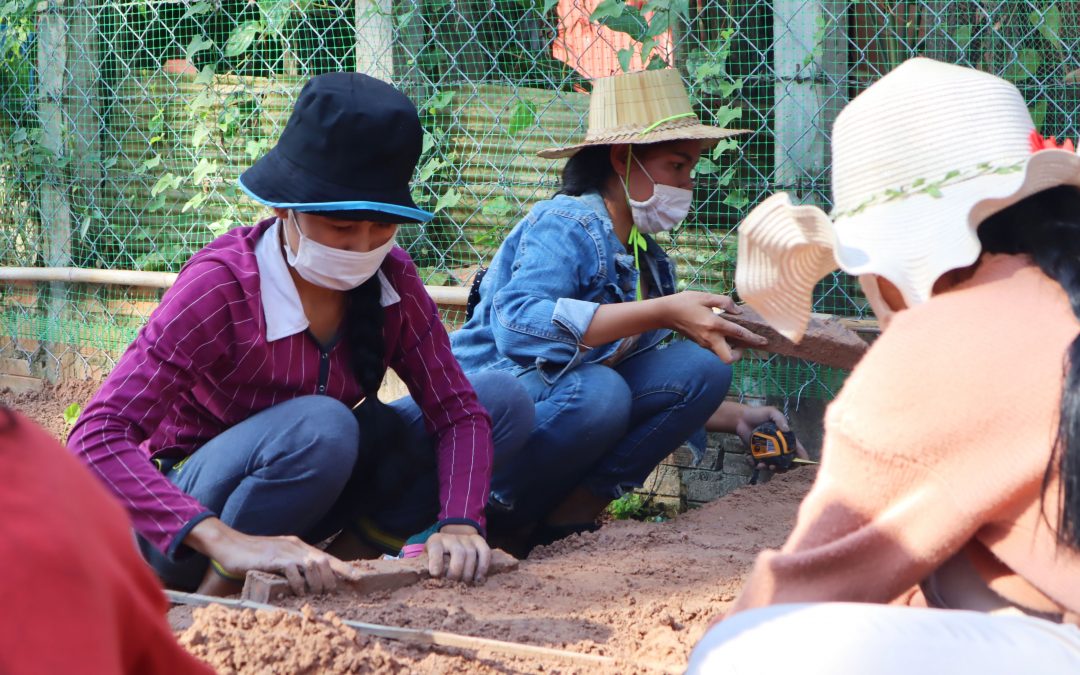Our Team at Sala Baï interviewed Christophe Baillet, general officer at Camborea. Camborea is a young local Cambodian NGO created in 2015 in Siem Reap by a French-Cambodian couple to help the more disadvantaged among their own community. The NGO has specialized into agroecology, food self-sufficiency and the preservation of the rich and natural Cambodian heritage of biodiversity.
Starting from 2021, sustainable agriculture will be at the center of students training. To do so, a 850 m2 garden is being constructed. It pursues many objectives including the fight for environmental protection and against global warming, the access to a healthy and diverse food and the use of short supply channels.
Wishing to be more sustainable, Sala Baï is cooperating with Camborea to raise awareness amongst students about agroecology.
Good morning Christophe. When did you begin to prepare the field next to the boarding school with the students?
The work really began in the middle of October with the fencing because the field was open. Then, we built the infrastructures: a greenhouse for the plants and a compost room by using as many as possible natural materials such as wood and bamboos. The students took care of the field cleaning which was not easy. They also helped us for the construction. For more than one month they helped us transform this wasteland into a cultivable land of 850 m2 ready for the sowing.

Twenty students participated to the field cleaning.
What is the objective of the project? What kind of garden do you want to create?
The first goal is to bring additional food for student meals with nutritive, quality and healthy fruits and vegetables.
This garden will be as natural as possible, from the construction to all the practices which will be used. For example, we will make our own seeds from reproductible seeds that we are already producing at Camborea. We will only use natural fertilizers, no chemical products will be used. When possible, we will limit plastic consumption by choosing natural materials and we will recycle as much as possible by composting the school and the training restaurant waste.
To this end, we will implement the permaculture principles which will enable us to produce more naturally and to train the students to a different agriculture more responsible and respectful of the soil, nature and humans.
How are the students helping you?
As I said the students did a helpful work with the field cleaning and landscaping. It was not the most interesting work but it was surely essential for the project. Today, we are in the middle of the garden developing phase and we start talking about the design, the importance of the soil, the compost and the seeds that we have started planting two weeks ago.
Some of the students already have agriculture knowledge as many Cambodians and we are pushing them to share their experience and to work together to help them take in charge this place to develop their own garden.
Once the developing phase will be over, it is forthcoming for the end of December, we will be able to work deeply on agroecology with the students.

At the beginning of December, the students started planting seeds.
How will you raise awareness among the students on agroecology? Why is it so important?
The workshops will be organized with groups of twenty students on the agroecological technics and practices and also on the importance of the biodiversity and the respect of nature for the garden. I have many videos on this subject in Khmer, French and English which we will use to start the courses.
These young students are the future of Cambodia, a country where the pesticides consumption is highly increasing. Cambodia is also suffering from plastic pollution, massive deforestation and endangered biodiversity and species.
The students are working in the tourism sector, some of them as food professionals, so they can be actors of change. That is why this project is crucial and it will be an asset for them in their training and their future life.
This agroecological project is a wonderful opportunity for Sala Baï students.





